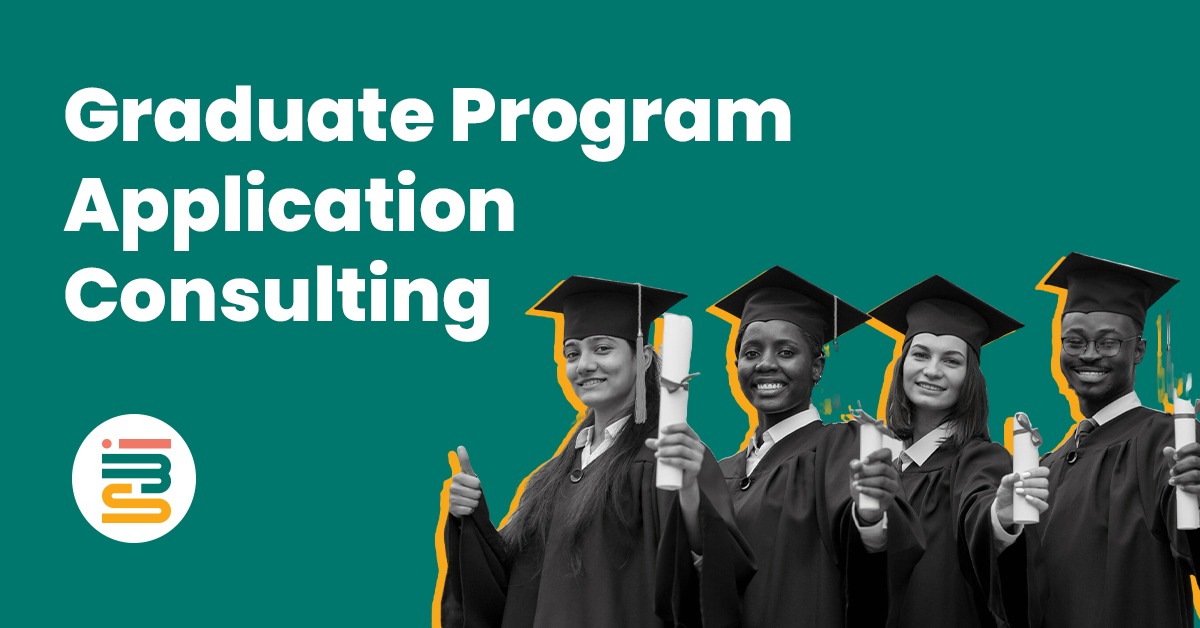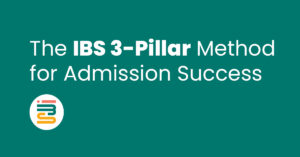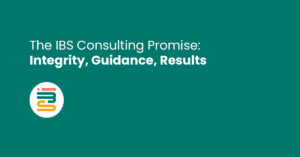Applying for graduate programs can be challenging. Many high school graduates and college students find the application process confusing and overwhelming. But don’t worry! Graduate program application consulting is here to help you every step of the way. This guide will take you through everything you need to know about applying for graduate programs, graduate school application tips, graduate school application checklist, program application help (and how to get one), including why consulting is useful, the different types of programs you can choose from, and helpful tips for creating a strong application.
Understanding the Journey
Starting your journey to graduate school is exciting but can also be stressful. You may have dreams of becoming an expert in your field, like a scientist, a teacher, or even a doctor. Graduate programs are designed to help you gain the knowledge and skills you need to reach those dreams. A great application is your ticket to standing out among many applicants. It’s not just about meeting the requirements; it’s about sharing your unique story and showing why you belong in that program.
The process involves many steps, from writing essays to gathering documents and getting recommendations. This might sound like a lot, but that’s where consulting can help! With the right guidance, you can feel more confident and prepared to tackle the application process.
Read More: why you need to study in the USA for Nigerian students
The Importance of Graduate Program Application Consulting
Why do graduate program applications matter? They are crucial for your future career. Graduate programs, whether Master’s degrees or PhDs, offer specialized training in various fields. This can open many doors for your career and help you achieve your professional goals.
Exploring graduate education opportunities is essential. Attend graduate school fairs, conduct informational interviews, and gather relevant data about programs before applying.
Read More: here’s how to earn a postgraduate diploma in the US
- Master’s Programs: Typically lasting one to two years, these programs focus on providing advanced knowledge in specific areas. Many require students to complete a thesis or a capstone project that demonstrates what they’ve learned.
- PhD Programs: These are designed for students who want to conduct original research in their field. PhD programs can take anywhere from three to seven years. Students must complete a dissertation and defend their work before they can graduate.
- Professional Degrees: Some programs, like those for law or medicine, prepare students for specific careers. These programs often have unique requirements and can be longer than standard degrees.
Choosing the right program is essential. It’s important to think about your career goals and what type of education you need to achieve them. Consulting services can help you explore your options and find the best fit for you.
Curious about the benefits of elevating your career to the next level? Reach out to IBS Consulting and book your FREE consultation to discover more!
Book Your Free Consultation
Read More: studying in the UK from Nigeria
Why Consulting Matters in the Application Process
Graduate program application consulting can be a game changer during your application journey. Many applicants face similar challenges, such as:
· Understanding Requirements: Each graduate program has its own set of rules and requirements. The admission process is complex, and meeting the minimum requirements is often insufficient. You need to prepare various detailed application components to significantly influence your chances of acceptance.
· Writing Personal Statements: This part of the application can feel like a mountain to climb. You have to express your goals, experiences, and why you want to join the program—all in a compelling way.
· Gathering Documents: Collecting all the necessary documents, like transcripts and letters of recommendation, can be overwhelming without proper organization.
Consulting services offer expert advice and support that can make your application smoother and less stressful. They can help you avoid common pitfalls that might hurt your chances of acceptance.
Read More: success strategies for Nigerians abroad
Understanding Graduate Programs
When you think about applying to graduate school, it’s important to know the types of programs available and what they involve. Here’s a closer look at the different types:
Students applying to graduate school programs face unique challenges in meeting specific requirements set by individual schools.
1. Master’s Programs
Master’s programs are a great choice for students looking to gain advanced knowledge in their fields. These programs usually take one to two years to complete. You may have to complete a thesis, which is a big project that shows your understanding of a topic. This is where you can really shine and show your passion for your subject.
2. PhD Programs
If you dream of conducting your own research and becoming an expert in a specific area, a PhD program might be right for you. These programs can take a long time, usually between three to seven years. You’ll be doing original research and writing a dissertation, which is a lengthy paper that you defend in front of a committee. This process is challenging but incredibly rewarding.
Interested in learning more about the benefits of professional development? Call IBS Consulting to schedule a FREE consultation right away!
Book Your Free Consultation
3. Professional Degrees
Programs like law or medicine prepare students for specific careers. These degrees often have unique requirements and typically last longer than standard master’s programs. If you have a clear career path in mind, these programs can set you up for success.
Choosing the right program is not just about the title; it’s about finding a place that aligns with your career goals and passions. A consultant can help you explore different options and find what suits you best.
Preparing for Graduate School
Preparing for graduate school requires careful planning and execution. It’s essential to start early, typically during the junior year of undergraduate studies, to ensure a smooth transition to graduate school. Here are some steps to help you prepare:
- Research Graduate Programs: Begin by identifying suitable graduate programs that align with your research interests and career goals. Look into the program’s curriculum, faculty expertise, and research opportunities. This will help you find a program that fits your aspirations and provides the resources you need to succeed.
- Develop a Strong Academic Record: Maintaining a high GPA is crucial for demonstrating your academic abilities. Take relevant coursework that showcases your strengths and prepares you for advanced study in your chosen field.
- Gain Research Experience: Participate in internships, research projects, or academic papers to gain hands-on experience in your field. This not only enhances your resume but also provides valuable insights and skills that will be beneficial in graduate school.
- Build a Strong Network: Establish relationships with academic and professional mentors who can provide guidance and support. These connections can offer valuable advice, write strong letters of recommendation, and help you navigate the grad school application process.
- Prepare for Standardized Tests: Familiarize yourself with the Graduate Record Examination (GRE) or other required exams and prepare accordingly. Taking practice tests, attending prep courses, or working with a tutor can help you achieve a competitive score.
Why You Need Application Consulting
Now that you understand the types of programs available, let’s talk about why consulting services can be incredibly beneficial during your application process.
Read More: A comprehensive guide to Canada vs USA for international students
Benefits of Consulting Services
1. Expert Guidance: Consultants know the ins and outs of the application process. They can help you understand what admissions committees are looking for and guide you in showcasing your strengths. With their experience, they can help you address any weaknesses in your application.
2. Personalized Support: Every student is different, with unique goals and challenges. A consultant can offer tailored advice that fits your individual needs, helping you to create a standout application that reflects who you are.
3. Stress Reduction: The application process can be a lot to handle. Having someone to support you can ease your worries and give you the confidence you need to succeed.
Common Challenges Faced by Applicants
Many students run into the same problems when applying for graduate programs. Here are some common challenges and how consulting services can help:
· Writing Personal Statements: This part of the application can feel like the most daunting. It’s your chance to tell your story and share your passion for your field. A consultant can help you brainstorm ideas and organize your thoughts to create a compelling statement.
· Choosing Recommenders: Picking the right people to write your letters of recommendation is crucial. You want recommenders who know you well and can speak to your abilities. A consultant can guide you on who to ask and how to approach them.
· Understanding Requirements: Each program has its own set of requirements, and keeping track of everything can be overwhelming. A consultant can help you stay organized and make sure you don’t miss any important steps.
Key Components of Graduate School Applications
Your application will consist of several important components. Let’s break them down so you know exactly what to focus on:
>Contact us
1. Personal Statements: Importance and Tips
A personal statement is a critical part of your application. It’s your chance to showcase your personality and passion for your field. Here are some key questions to consider:
A statement of purpose is equally important and can significantly influence admission decisions. Many programs require this document alongside other application materials, so prepare it carefully to maximize your chances of acceptance.
· Why do you want to pursue this program? Think about what sparked your interest and what you hope to gain.
· What experiences have shaped your goals? Reflect on any experiences that have influenced your career path.
· How will this program help you achieve your career objectives? Be specific about how the program aligns with your goals.
Tips for Writing a Great Personal Statement:
Here’s how to write a personal statement for grad school
· Be Authentic: Write in your own voice. It’s important to be honest about your motivations and experiences.
· Tell a Story: Share specific experiences that illustrate your journey and growth. Stories can make your application memorable.
· Stay Focused: Keep your writing clear and on-topic. Avoid unnecessary details that may distract from your main points.
2. Letters of Recommendation: How to Choose Recommenders
Choosing the right recommenders can make a big difference in your application. Here are some tips to consider:
· Select People Who Know You Well: Ideally, your recommenders should have worked closely with you. They should be able to provide specific examples of your abilities and achievements.
· Consider Their Background: If possible, choose recommenders who are respected in your field or who hold relevant positions. Their credibility can add weight to your application.
· Ask Early: Give your recommenders plenty of time to write strong letters. Approach them well in advance of your application deadline.
3. Transcripts and Academic Records
Most graduate programs require official transcripts from your previous institutions. Make sure to request these early, as it can take time for schools to process requests. Keep track of your academic records to ensure that all necessary documents are submitted on time.
Read More: Tuition free universities in Canada
Standardized Tests and Scores
Standardized tests are a crucial component of the graduate school application process. Most graduate schools require applicants to submit scores from the GRE, GMAT, or other exams. Here’s what you need to know:
- GRE: The GRE is a standardized test that measures verbal reasoning, quantitative reasoning, and analytical writing skills. It’s required for most graduate programs, including master’s and doctoral programs. Preparing for the GRE involves understanding the test format, practicing with sample questions, and improving your test-taking strategies.
- GMAT: The GMAT is a standardized test that measures verbal, mathematical, and analytical writing skills. It’s required for most business and management graduate programs. Like the GRE, preparing for the GMAT involves familiarizing yourself with the test format and practicing extensively.
- Test Preparation: Effective test preparation is key to achieving a competitive score. Consider taking practice tests, attending prep courses, or working with a tutor to improve your performance. Consistent practice and review can help you identify areas for improvement and build confidence.
- Score Requirements: Check the score requirements for your chosen program and aim to achieve a competitive score. Understanding the average scores of admitted students can give you a target to strive for and help you gauge your readiness.
Funding Opportunities
Graduate school can be expensive, but there are various funding opportunities available to help you cover the costs. Here are some options to consider:
- Scholarships: Many graduate schools offer scholarships to incoming students. Research and apply for scholarships that match your qualifications and interests. Scholarships can significantly reduce your financial burden and allow you to focus on your studies.
- Assistantships: Teaching assistantships, research assistantships, and graduate assistantships are available to graduate students. These positions provide a stipend and tuition waiver in exchange for work. Assistantships offer valuable experience and financial support, making them an attractive option for many students.
- Fellowships: Fellowships are competitive awards that provide funding for graduate study. Research and apply for fellowships that match your research interests and goals. Fellowships often come with additional benefits, such as networking opportunities and professional development resources.
- Loans: Federal and private loans are available to graduate students. However, be cautious of accumulating debt and explore other funding options first. Loans should be considered as a last resort, and it’s important to understand the terms and repayment conditions before borrowing.
Interview Preparation and Performance
The interview is a critical component of the graduate school admissions process. Here’s how to prepare and perform well:
- Research the Program: Familiarize yourself with the program’s curriculum, faculty, and research opportunities. Understanding the program’s strengths and how they align with your goals will help you articulate why you are a good fit.
- Practice Common Interview Questions: Prepare answers to common interview questions, such as “Why do you want to attend this program?” or “What are your research interests?” Practicing your responses can help you feel more confident and articulate during the interview.
- Develop a Strong Personal Statement: Use your personal statement to highlight your research interests, goals, and motivations. A well-crafted personal statement can serve as a foundation for your interview responses and demonstrate your commitment to the field.
- Prepare for Behavioral Questions: Be ready to provide specific examples of your skills and experiences. Behavioral questions often focus on how you have handled challenges or demonstrated key competencies, so think about relevant experiences that showcase your abilities.
- Dress Professionally: Make a good impression by dressing professionally and being punctual. Your appearance and demeanor can influence the interviewer’s perception of you, so aim to present yourself as a serious and dedicated candidate.
Step-by-Step Application Process
Creating a timeline can help keep you organized throughout the application process. Here’s a general timeline to follow:
Timeline for Application
· Research Programs (6-12 months before applying): Start looking into different graduate programs that interest you. Make a list of their requirements and deadlines.
· Prepare Application Materials (3-6 months before applying): Work on your personal statement, gather transcripts, and ask for letters of recommendation. The undergraduate degree is a foundational stage for preparing a strong graduate school application, so start enhancing your application efforts during your undergraduate years.
· Submit Applications (1-3 months before deadlines): Make sure that all materials are submitted before the deadlines.
· Follow Up (after submission): Check in with your recommenders and programs to confirm that everything has been received.
Researching Programs and Requirements
Understanding the programs you’re interested in is crucial. Look into their curriculum, faculty, and unique features. Make sure you know the specific requirements for each program, including standardized tests like the GRE or GMAT. Knowing what each program expects can help you tailor your application.
Read More: Universities in Ontario for international students
Preparing Application Materials
Gathering and preparing your application materials is a critical step. Make sure you have everything ready, including:
· Your resume or CV: This should highlight your education, work experience, relevant skills, and any volunteer activities or extracurricular involvement that showcase your qualifications.
· Personal statement: This is your opportunity to tell your story and explain why you are a great fit for the program.
· Letters of recommendation: Ensure you have secured strong letters from your recommenders.
· Transcripts: Request these from your previous institutions early on.
Graduate Program Applications: Why IBS Stands Out in Personal Statement Guidance
Applying for graduate programs can be intense, but IBS Consulting is here to make it easier and more successful than with other firms. Here’s why:
1. Tailored approach: IBS doesn’t believe in a one-size-fits-all approach. Every client’s story and goals are unique, so we personalize our guidance to help you stand out in any student visa application process or application step.
2. Deep expertise: Our team knows the ins and outs of graduate program applications and keeps up-to-date on admission trends. This simply means we help you avoid mistakes and present a powerful application.
3. Focused support: From brainstorming your personal statement to selecting recommenders, IBS guides you at each stage, making sure nothing’s missed. We’re with you every step of the way, making the process less stressful and more rewarding.
With IBS Consulting, you’re not just another applicant—you’re a top priority.
Application Timeline and Deadlines
The graduate school application process can be complex and time-consuming. Here’s a general timeline to help you stay on track:
- Research Programs (Junior Year): Start researching graduate programs during the junior year of undergraduate studies. Identify programs that align with your interests and goals, and make a list of their requirements and deadlines.
- Take Standardized Tests (Summer/Early Fall of Senior Year): Take the GRE, GMAT, or other required exams during the summer or early fall of the senior year. This allows time for retakes if necessary and ensures your scores are ready for application deadlines.
- Secure Letters of Recommendation (Summer/Early Fall of Senior Year): Ask academic and professional mentors for letters of recommendation during the summer or early fall of the senior year. Provide them with ample time to write strong, detailed letters.
- Submit Applications (Fall of Senior Year): Complete and submit graduate school applications during the fall of the senior year. Ensure all materials, including transcripts, personal statements, and letters of recommendation, are submitted before the deadlines.
- Participate in Interviews (Fall/Winter of Senior Year): Participate in interviews, either in-person or virtual, during the fall or winter of the senior year. Prepare thoroughly and present yourself professionally.
- Receive Admission Decisions (Winter/Spring of Senior Year): Receive and review admission decisions from graduate programs during the winter or spring of the senior year. Consider all offers carefully and weigh the pros and cons of each program.
- Make a Decision (Spring of Senior Year): Make a decision on which graduate program to attend and submit a deposit to secure a spot. Inform other programs of your decision and begin preparing for your transition to graduate school.
By following this timeline and staying organized, you can navigate the graduate school application process with confidence and increase your chances of success.
Conclusion
Applying for graduate program application help doesn’t have to be a stressful experience. With the right guidance and support, you can navigate the application process with confidence. IBS Consulting is one graduate program application consulting, which can offer the expertise you need to stand out in a competitive field. Take the first step towards your dreams and consider reaching out to a consultant today. Together, you can create a winning application that opens doors to your future.





